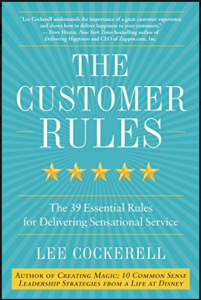Running a small business can be hard. Most of us were not very good at it when we started, but (hopefully) we kept going anyway. We tried to do our best with the skills we had. We worked hard, made mistakes, and (hopefully) learned from those mistakes. Lather, rinse, repeat.

It’s really amazing that we made it this far, isn’t it? The number of mistakes we made back then are probably beyond reckoning. It seemed like every time we turned around there was something else that needed to be dealt with: clients, sellers, agents; each one of them with something to complain about.
It’s hard to believe that we survived those start up days, but yet, here we are. And yes, we learned some painful lessons along the way. Sometimes those lessons hurt us in our wallet, sometimes they hurt our pride, and sometimes they actually hurt (damn live wires!) Oftentimes, it was some combination of these different kinds of pain that hit us all at once.
But we did it; we survived those trials and we’re smarter for them. No pain, no gain. That’s what they say.
If we learned anything from all that pain (and hopefully we did), we had to go through those lessons ourselves. We didn’t pick up that knowledge second-hand; we’ve got all the bruises (and cancelled checks) to show for it.
So, how did we learn from our mistakes? What (exactly) was the process by which we absorbed all that new knowledge?
Feedback.
We learned those new lessons through feedback. We took in the advice, reactions, comments, and criticisms of those we were working with, and we figured out the best way to deal with them. We learned how to process all the feedback that we were getting, and we made the best of each situation.
Learning how to process feedback is a valuable business (and life) skill. Unfortunately for us, it’s not something that we learned in home inspection school. (Maybe it should’ve been taught in home inspection school, as it probably would’ve come in handier that most of the useless stuff we were forced to study…)
Processing feedback is certainly a useful talent, but for the most part, it’s a skill that must be learned through trial and error. We’ve often got to go through these troublesome situations in order to figure out our best course of action.
The seller who complains that we left their heater cranked up to 95 degrees when we left.
The buyer’s agent that feels like we were talking over them when they were trying to explain to their clients exactly what we meant when we were going over our findings.
The buyer who wants to know why we didn’t take a picture of every single fogged window in the house.
The seller’s agent who wants to know why we called out something wrong that was clearly “grand-fathered in.”
What are we supposed to do with all this stuff?
How do we deal with the seller that’s set on trolling us because they want top dollar for their piece of crap house, and we had the nerve to call out the deficiencies? What about the previous client who’s walking through life full of pain and misery, and longing to share all their suffering with everyone they come in contact with?
How do we tell the difference between useful, valuable feedback and everything else? How to we decide which person is giving us constructive criticism, that could provide insight into what it is our clients are looking for, and the trolls who would like nothing more than to get inside our heads, distracting us from what it is we’re really trying to accomplish?
If we spend all our time listening to all the feedback, we’ll never be able to get better, wasting all our energy on trying to be everything to everyone. But, if we ignore all the feedback, we lose any chance of ever learning from those valuable teaching moments.
Unfortunately, like everything important that we learn in life, there is no black or white, cut and dry, right and wrong answer.
But we can still make a decision; we can choose to keep asking questions; to keep listening to the answers. And eventually, with practice, we’ll get better at listening to the important stuff (and ignoring all the noise.)

The best thing for us to do is to put the feedback into two different groups. The group of “I’m looking for exactly this type of information so that I can use it to make positive changes in my process.” And the group of “I don’t really need to hear this because it has no redeeming value whatsoever.”
There is no place in our business (or our lives) for a third group.
Would you like to get an email every Friday where we share the newest things we’ve discovered about home inspections? CLICK HERE to sign up.
Want to be an Influencer in Your Field? Share This Post!
Thanks, Joe


